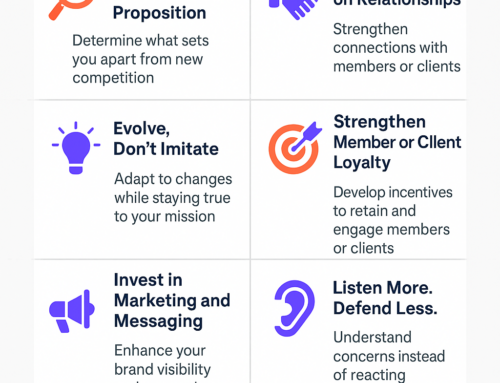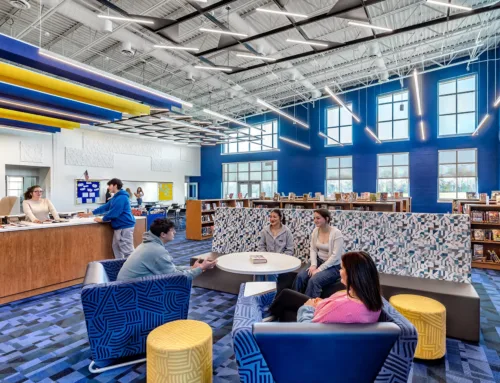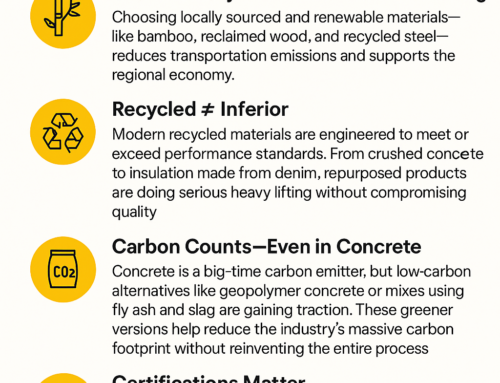Best practices in the construction industry were recognized by the St. Louis Council of Construction Consumers (SLCCC) during its annual awards on March 5, 2018 at the St. Louis Science Center Planetarium, St. Louis, MO. The annual awards recognize successful use of Construction Industry Best Practices validated by the Construction Industry Institute (CII) to improve project quality, budget, and schedule.
SSM St. Joseph Hospital
Construction of the expansion of SSM St. Joseph Hospital was recognized for the Front End Planning Best Practice. The project added 3 stories to the existing 2 story hospital without disrupting the continuing health care services in a fully functional institution. Joining in award honors were team members: SSM Health St. Joseph Hospital, Alberici, Northstar Management, and the Lawrence Group.
Working with hospital management and department heads, the teams developed a detailed plan for material deliveries and crane logistics. Bluebeam software was used to plan access routes, maintain life safety functions and implement phased access to critical utilities. To support the critical need for patient confidentiality, site specific orientations for all trades people and vendors were conducted to provide coaching on special conditions required in the hospital. The team delivered the project under budget and 2 months ahead of schedule with zero lost time incidents.
Everly on the Loop
The Materials Management Best Practice was critical to successful construction of a 14 story housing complex for college students. The project was constructed in a tightly bordered “urban infill” site devoid of lay down space. Joining in award honors were Clayco, CRG, Koman Group and Forum Studio.
The project was constructed on an entire buildable block in a neighborhood with a proliferation of stores, restaurants and entertainment venues. There was no space for material staging and only a lane drop in the street side parking area for delivery trucks. The team used a meticulous process to collaborate with material suppliers and subcontractors to schedule purchases and deliveries to avoid storage costs. A unique concrete form work was developed that allowed the team to pre-fabricate 10 foot by 10 foot re-usable form tables. Significant portions of the plumbing and electrical were pre-piped and pre-wired to shorten delivery and installation times. The project benefitted with a streamlined engineering process, cost savings, fast paced schedule and efficient use of labor force.
Monsanto Building K Waterproofing
Restoring the building integrity of an underground structure was the purpose of the waterproofing project for Building K on the Creve Coeur, MO campus of Monsanto. Continued service as a fully functional cafeteria and service to adjacent buildings created the opportunity to use the Constructability Best Practice for successful completion. Joining with Monsanto in receiving the award were the team led by S. M. Wilson with ABS Consulting and Shield Systems.
The project required excavation and exposure of the existing below grade concrete while maintaining the shoring and set back restrictions. The project required carefully choreographed sequence of operations prior to construction. Because existing waterproofing had been removed prior to installation creating vulnerability to the elements, construction activities had to be evaluated with known risks and alternate solutions. This included additional labor pre-trained in safety and on standby in the event of unfavorable weather as well as numerous field observations to adhere to construction details and to avoid potential re-work.
Nissan Logistics Center HVAC, Process and Utility Services
Icon Mechanical served as mechanical contractor leading the effort for installation of HVAC, process and utility services for construction of the Nissan Integrated Logistics Center in Smyrna, Tennessee. The Modularization Best Practice became the essential tool to meet the aggressive schedule. Additional award recipients were Clayco, Nissan, Panatonni, and CRG.
The project would boast two 1500 ton chillers, condenser water and process pump skids and over 40,000 feet of pipe through a one million square foot production facility. The project needed substantial completion in less than a year from the notice to proceed. Using Building Information Modeling, the team designed 54 pipe racks with multiple utility systems on each rack. Modules were pre-fabricated within the controlled environment of a fab shop and shipped to the site. Each section was fitted with hangars and turn buckles during the pre-fabrication phase which supported precision rack placement and alignment. Units were shipped into the building and installed at the same time that the structure itself was being built. The $14 million mechanical component of the project had an expedited project schedule that took 6 months from on-site start to substantial completion.
There are seventeen best practices which have been validated by the Construction Industry Institute (CII) to provide savings in cost and schedule. Validation is based on results from projects throughout the country. The CII is recognized as a principal construction industry forum for improving the business effectiveness and sustainability of capital facilities.
Diversity and inclusion champions in the construction industry were also recognized by the St. Louis Council of Construction Consumers (SLCCC) during the annual awards.
The St. Louis Council of Construction Consumers (SLCCC) represents major buyers of construction. SLCCC serves as the owner advocate organization for achievement of best value in project delivery and is the regional leader that champions best practices through educational programs, information dissemination and collaboration.






